Dybbuk

I’m starting to think there are too many voices offering help these days… Even just a few years ago, there were ‘lots’ of places to go for new information….
- The TV
- Libraries
- magazines
- newspapers
- Books
But now there is the internet. It has allowed much, much more information to be spewed out at every website – just like this one. People are able to share not just their opinion on the news, but their version of the news also.
An active person can feasibly create a basic website for the online TV channel they have created in their head. They can post the edited video to youtube and add the videos to their own site until the point where they can be realistically considered an authority by sheer volume of material.
It is a wonderful time?
It is a wonderful time for information, and for technology. It is a terrible time because of information access and technology.
It is now a time where I can listen to 5by5 podcasts with Merlin and Dan talking about organising life, while creating leaflets that to others how to organise their lives, knowing all the while that just listening to- or reading the advice dispensed is no solution at all. Action is the crucial part.
But acting upon which voice? There are so many sources of information now that even acting upon any of it has become precarious in a way. Before you can even act now you have to try to understand which source – which voice – of information is the right one to listen to.
Having such a rich source of information in the internet is an amazing step in the history of the world. We have been using printing presses for hundreds of years, and we still use that same technology (at least in principle) today… If you want someone to get your message on the street or in a meeting what will you give them? A business card or a leaflet of some kind.
But now we have the web. And in the last few years especially it has gained such mindshare and mass to it. Now even those that never use the internet themselves ask “can you find such-and-such on the web…” They know that the answers are instant, abundant, and usually quite accurate. In the past it was slow, usually singular (unless you were fortunate to own lots of books on similar subjects, and usually quite accurate.
Warning! Dangers Ahead
I think the fact that the answers are instant and abundant are actually inherent dangers now. Instead of having to study the information to get the answers, to know the material well enough to be able to lookup the answer, now we dont even really have to know the question properly, we can type almost any query into a chosen search engine and obtain “answers.”
I believe this introduces a serious infection of laziness. We know that the great men of times past were very intelligent people. They had great minds – why? Organised thinking for one. And also because they had to study and remember in order to get anything done. They were entirely unable to blurt out a misspelt, disorganised ‘query’ and get and answer – they would have been laughed to scorn.
For the record, I do not think that we are inherently less smart. But I think in our quest for everything to be fast and easy we lose the ability to work at obtaining the solution. Which is laziness by a de facto choice. This places less value on the thing that we have learned because we can just quickly get the same search result as quick as a flash just like the first time.
The process of non-Learning
The day before yesterday, I came across the word “dybbuk.” I didn’t know it. It means, “a malevolent, wandering spirit that enters and possesses the body of a living person until exorcised.” (According to Apple’s built-in dictionary).
It took me less than a second to find the meaning to this word. All I had to do was make a 3-fingered keyboard command and I had the answer. And within 10 minutes I had forgotten the meaning. And the word. I wasn’t learning. The new information had no real value to me because I had no real investment in it. In short it was all too easy.
So what is my argument in all this? Perhaps we should spend a little more mindfulness in those things that are so easy to do. We have been blessed by living in an age where we can discover (and publish) new material and information at a whim. But with that power comes the responsibility of making sure that we are not lazy within this instant information-laden lifestyle.
